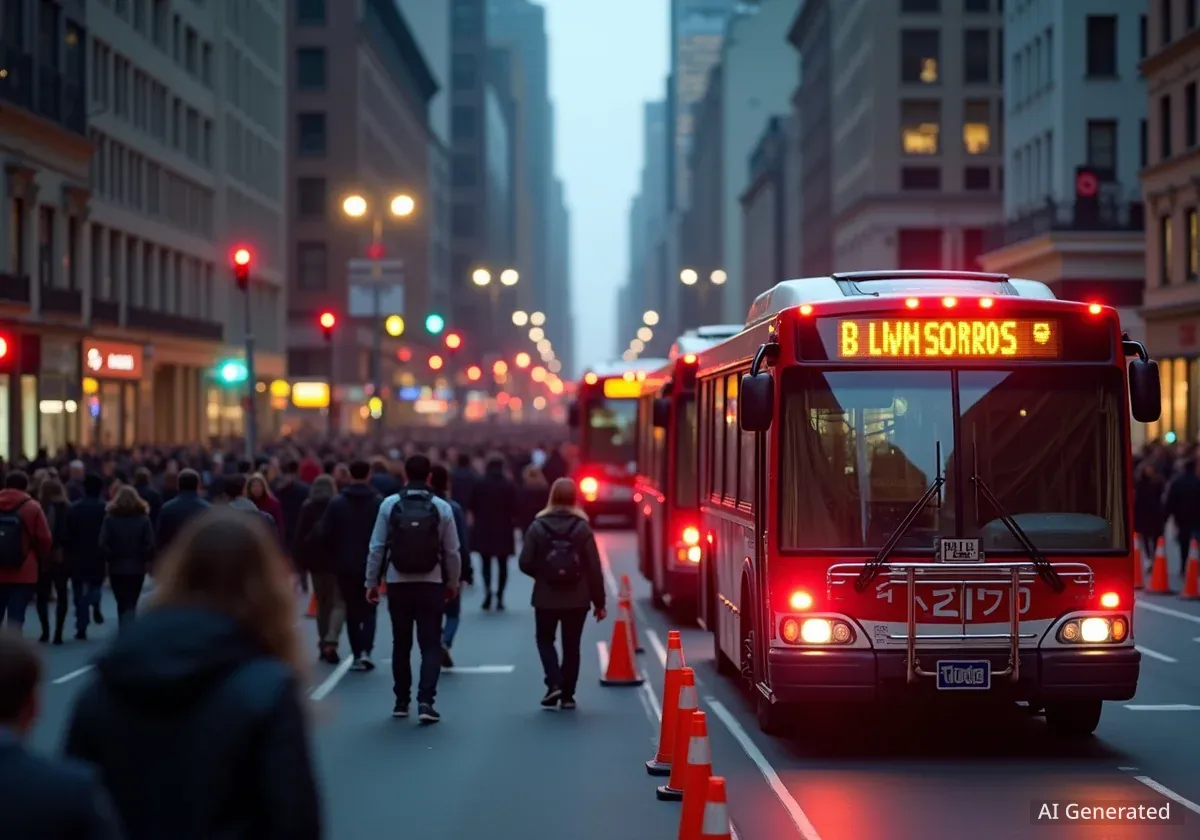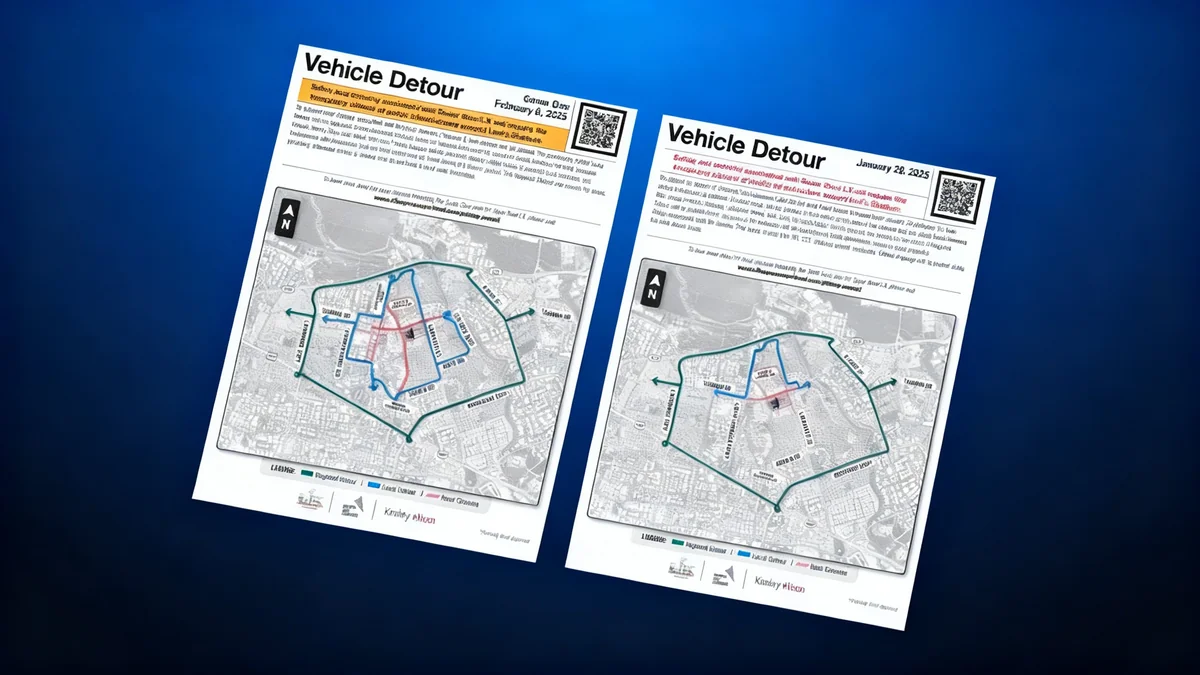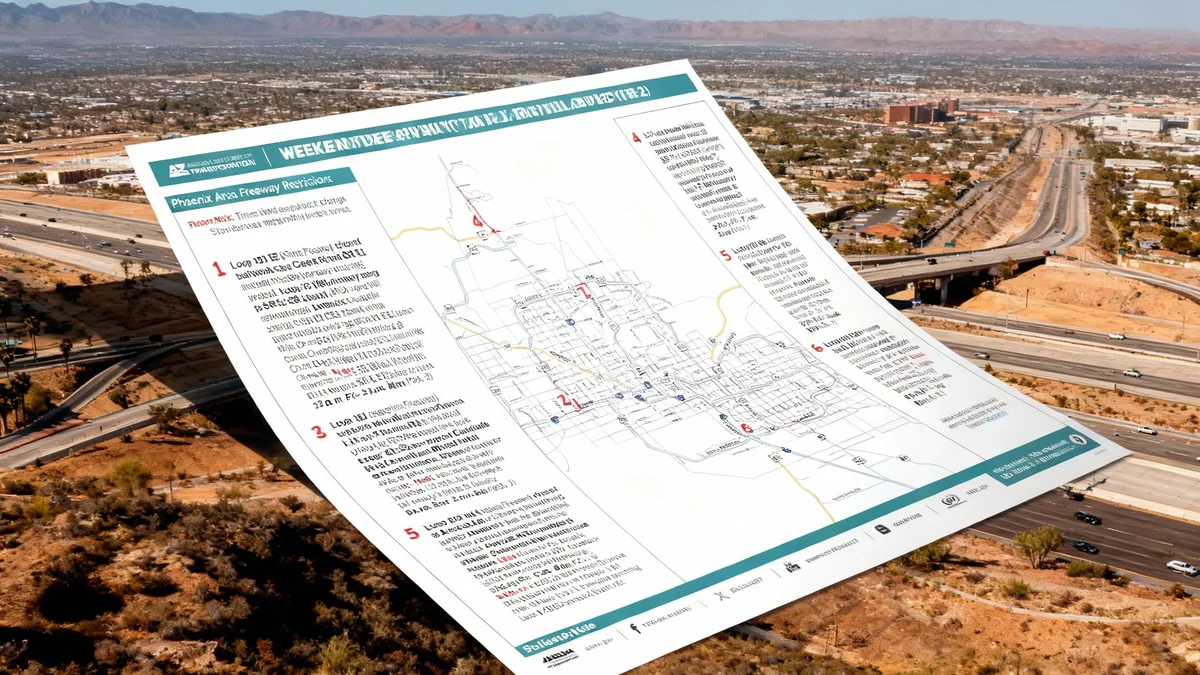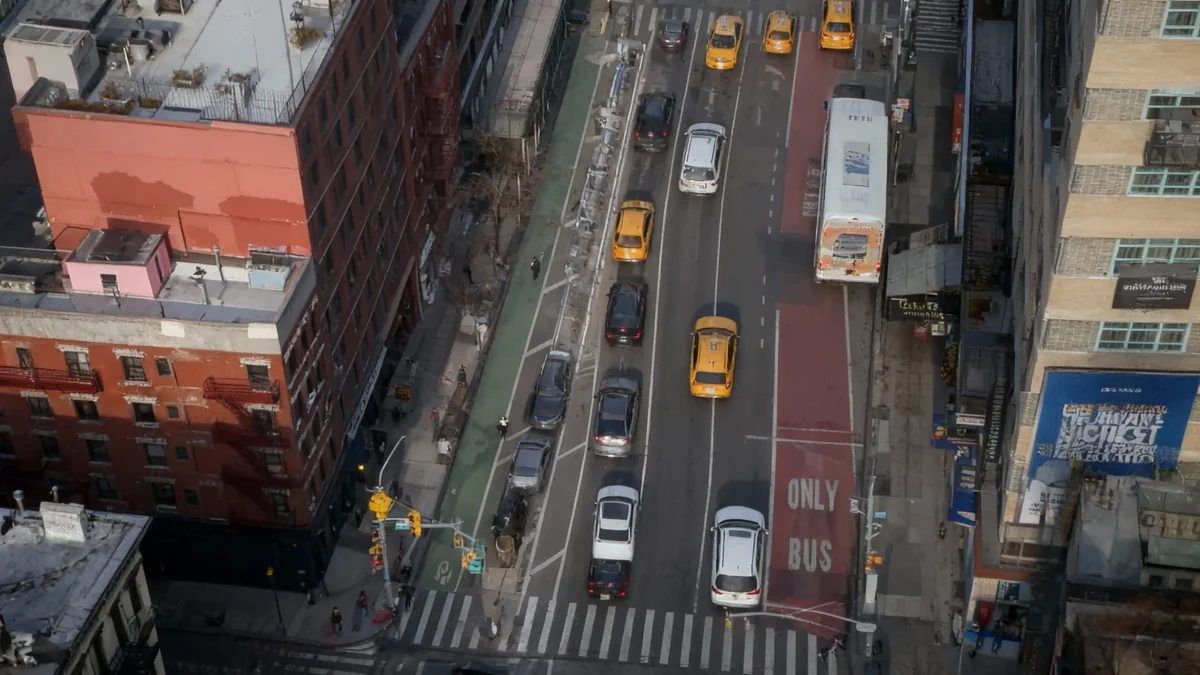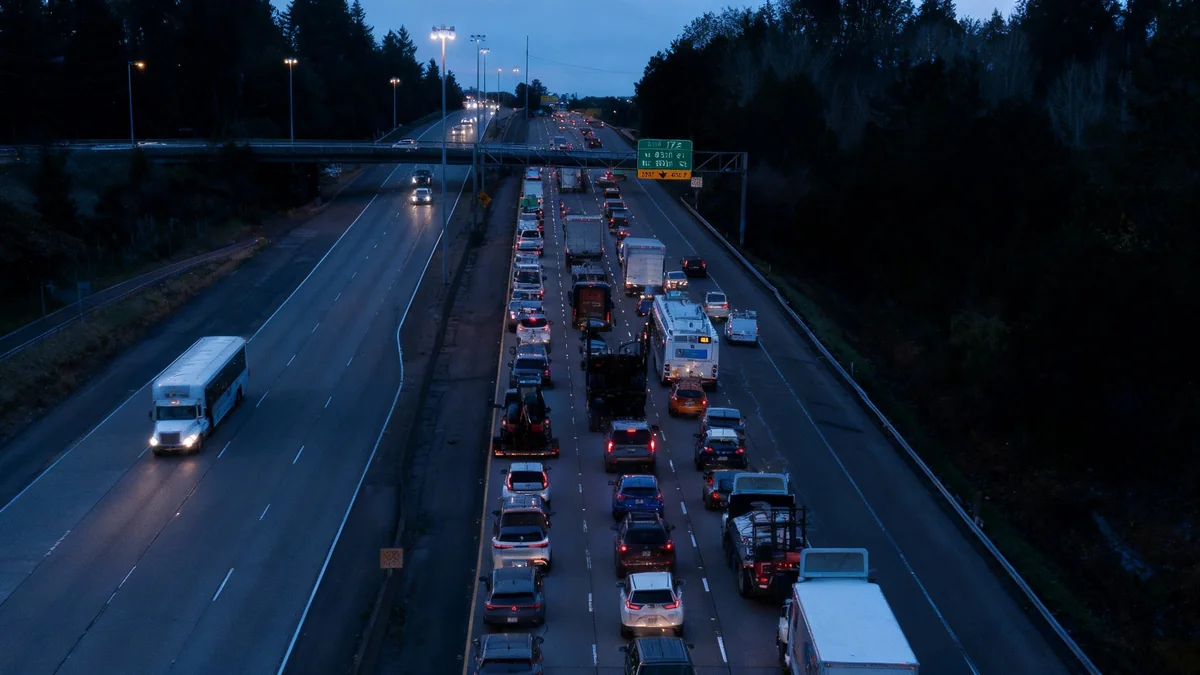A protest event in downtown Denver, identified as a "No Kings" demonstration, led to significant road closures and disruptions to Regional Transportation District (RTD) services on Saturday. Authorities advised drivers and commuters to seek alternative routes to avoid substantial delays in the city center.
Key Takeaways
- "No Kings" protest caused major road closures in downtown Denver.
- Lincoln Street was a primary area of disruption, near the State Capitol.
- RTD bus routes faced detours, impacting multiple lines.
- Demonstrators marched from the State Capitol, leading to rolling road closures.
- Commuters were advised to use alternate routes and check RTD service alerts.
Demonstration Begins Near State Capitol
The Denver Police Department (DPD) first reported issues around 12:17 p.m. MDT. Lincoln Street was closed at 14th Avenue due to the protest activity. This area is central to downtown Denver and close to the State Capitol Building, a common site for public gatherings.
Police indicated that additional road closures might become necessary as the demonstration progressed. They urged the public to stay informed and plan their travel accordingly. The immediate impact was felt by drivers attempting to navigate the core of the city.
Quick Fact
The Denver Police Department initially reported road closures at 12:17 p.m. MDT on October 18, 2025.
Rolling Closures as Marchers Move
By 1:09 p.m. MDT, DPD confirmed that demonstrators had begun marching away from the State Capitol. This development changed the nature of the traffic disruptions from static closures to rolling ones. Rolling closures mean that roads are temporarily blocked as the procession moves through different areas of downtown.
Drivers were again advised to avoid the downtown area if possible. The dynamic nature of the protest meant that specific road closures could change rapidly, making real-time navigation challenging for those unfamiliar with the protest route.
"Drivers should expect rolling road closures in the downtown area and to avoid them, if possible," a DPD statement read at 1:09 p.m. MDT.
Impact on Public Transportation
The Regional Transportation District (RTD) also issued alerts regarding the protest's effect on its services. At 12:29 p.m. MDT, RTD announced that Lincoln Street was closed near Civic Center. This closure directly impacted several key bus routes.
According to RTD, bus routes 0, 1, 6, 10, 15, 16, and 83 were detoured. These detours likely added travel time for passengers and altered their usual stops. Public transit riders depend on predictable routes, and such disruptions can significantly affect daily commutes and plans.
Background on RTD Service
The Regional Transportation District (RTD) provides public transit services for the Denver metropolitan area and surrounding communities. Its network includes buses, light rail, and commuter rail, serving millions of passengers annually. Disruptions to major routes can affect a large number of daily commuters.
Ongoing Service and Commuter Options
Despite the widespread disruptions, RTD confirmed that some services remained operational for those needing to leave Denver. As of 2:21 p.m. MDT, the FF and 120X buses were in service. All rail lines were also reported to be operating normally for individuals traveling via Union Station.
This information was crucial for travelers and residents attempting to manage their plans amidst the protest activity. RTD encouraged all riders to check their official website for the latest service alerts and updates. This practice helps commuters make informed decisions about their travel during periods of unexpected disruption.
- Bus Routes Detoured: 0, 1, 6, 10, 15, 16, 83
- Buses Still Running: FF, 120X (as of 2:21 p.m.)
- Rail Service: All rail lines operational via Union Station
Advisory for Residents and Travelers
Local authorities maintained a strong advisory for both residents and visitors. The recommendation was to avoid the downtown area if not essential. For those who needed to travel through the affected zones, using alternate routes was critical to minimize delays.
The situation highlighted the importance of real-time information from official sources like the Denver Police Department and RTD. Such events can evolve quickly, and timely updates are essential for public safety and efficient urban movement. The "No Kings" protest demonstrated the immediate and broad impact public demonstrations can have on metropolitan infrastructure and daily life.
The event concluded without further immediate reports of major incidents beyond the traffic and transit disruptions. Authorities continue to monitor such situations to ensure public safety and manage urban flow effectively.

